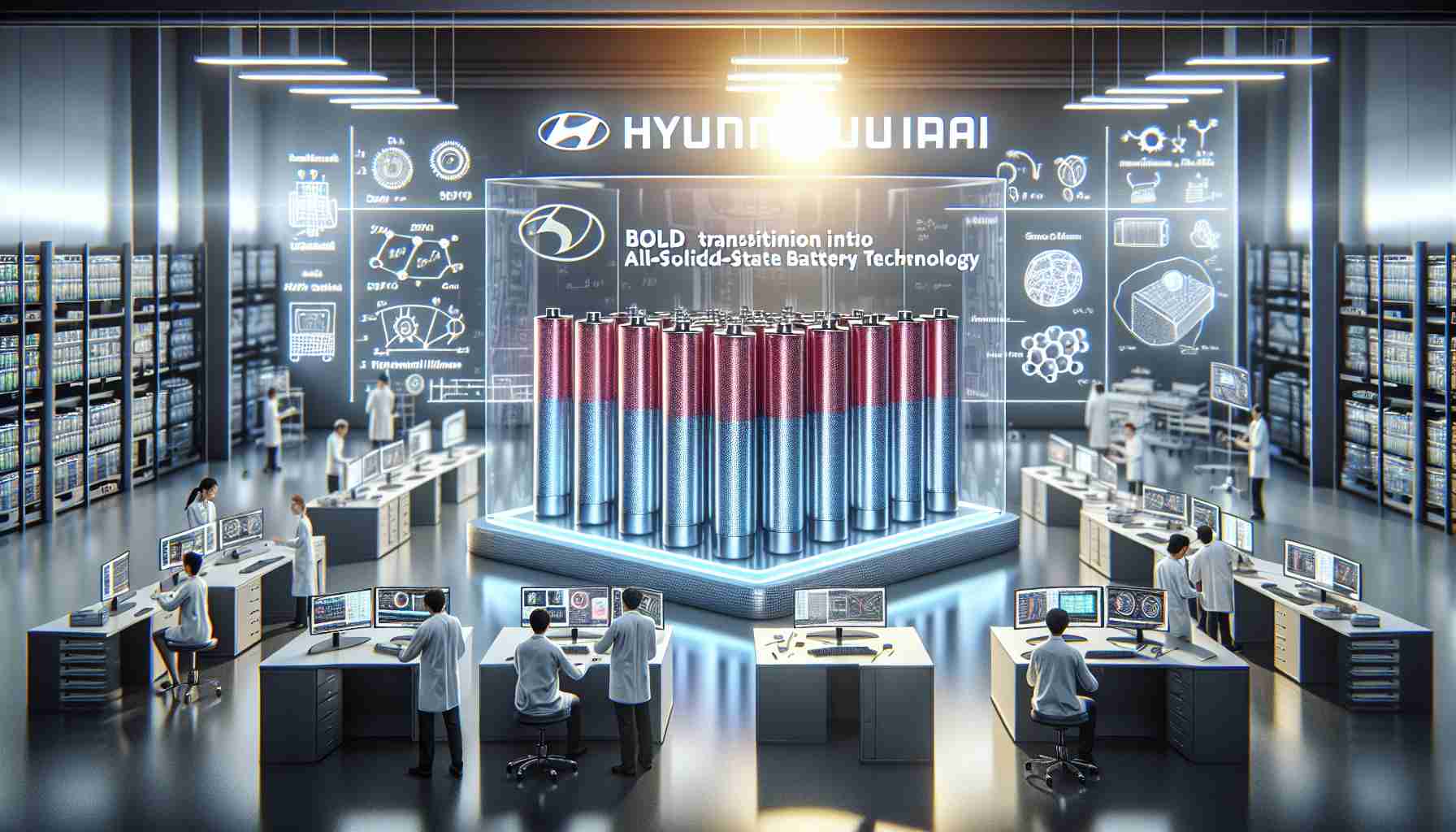A game changer is on the horizon for electric vehicles. Hyundai is set to revolutionize the industry with all-solid-state batteries by early 2025.
Hyundai Motor Company is gearing up for a transformative leap in electric vehicle (EV) technology, focusing on all-solid-state batteries, which are anticipated to redefine energy storage. Located in Gyeonggi-do, South Korea, Hyundai’s sophisticated Next-Generation Battery Research Center is currently in the final stages of installation, with the production line expected to launch operations in January 2025.
This innovative battery technology operates differently than traditional lithium-ion batteries. Instead of using a liquid electrolyte, all-solid-state batteries utilize solid materials, which enhances their safety and performance. Their unique design reduces the risk of fire and explosion, a significant concern for current battery types, while also offering a higher energy density that can improve driving range and efficiency.
Hyundai plans to incorporate prototypes from this new production line into its vehicles for comprehensive testing, simulating real-world driving conditions. This initiative aligns with their broader strategy to introduce these advanced batteries into their EV lineup by 2025 and enter mass production by 2030.
Recent advancements from competitors, including developments by Factorial Energy and Honda, underscore a growing trend toward adopting all-solid-state technology across the EV and aviation industries. As Hyundai pushes forward with its ambitious plans, the promise of safer, more efficient EVs is becoming increasingly tangible, marking an exciting era in transportation technology.
Revolutionizing Electric Vehicles: Hyundai’s All-Solid-State Battery Breakthrough by 2025
Hyundai Motor Company is on the brink of a major breakthrough in the electric vehicle (EV) sector, with its upcoming all-solid-state battery technology poised to redefine the landscape of energy storage. Set to launch operations in early 2025 at their state-of-the-art Next-Generation Battery Research Center in Gyeonggi-do, South Korea, this technology promises significant advancements in both safety and performance compared to traditional lithium-ion batteries.
What Are All-Solid-State Batteries?
All-solid-state batteries represent a cutting-edge approach to energy storage. Unlike conventional batteries that employ liquid electrolytes, these innovative batteries utilize solid materials, providing several advantages:
1. Enhanced Safety: The absence of flammable liquid electrolytes significantly reduces the risk of fires and explosions, a primary concern with current battery technologies.
2. Higher Energy Density: All-solid-state batteries can store more energy in a compact form, potentially increasing the driving range of electric vehicles and improving their overall efficiency.
3. Longer Lifespan: These batteries are likely to experience less degradation over time compared to traditional batteries, leading to longer-lasting energy solutions.
Advantages of Hyundai’s Initiative
Hyundai’s strategic move aligns with a broader trend in the automotive industry towards sustainable and efficient energy solutions. The incorporation of all-solid-state batteries indicates a commitment to:
– Sustainability: By enhancing battery safety and longevity, Hyundai is contributing to a more sustainable future for electric mobility.
– Innovation: This initiative places Hyundai at the forefront of EV technology, likely increasing its market share as consumer demand for safer and more efficient vehicles continues to rise.
Market Trends and Competitor Developments
The push for all-solid-state batteries is not unique to Hyundai. Competitors like Factorial Energy and Honda are also making strides in this area, indicating a shift in the industry towards advanced battery technologies across multiple sectors, including aviation. This competition drives innovation and could lead to a rapid evolution of EV capabilities.
Limitations and Challenges Ahead
Despite the promising prospects, the transition to all-solid-state batteries is not without challenges. Some of these include:
– Manufacturing Scale-Up: Establishing efficient mass production processes for solid-state batteries remains a complex task.
– Cost Factors: While these batteries may offer superior performance, the initial manufacturing costs could be higher than traditional options, potentially impacting pricing strategies.
– Market Acceptance: Education and consumer acceptance of new technologies are crucial for widespread adoption.
Future Predictions
Analysts predict that the successful implementation of solid-state technology will not only enhance Hyundai’s EV lineup by 2025 but also set a new benchmark in the automotive industry. As consumer preferences shift towards safer and more efficient options, companies taking the lead in solid-state development may shape the future landscape of electric mobility.
Conclusion
Hyundai’s commitment to all-solid-state batteries is a game changer in the realm of electric vehicles, positioning the company as a pioneer in innovative energy storage solutions. As it edges closer to integrating this technology into its vehicle production by 2025, the automotive industry stands on the cusp of a technological revolution.
For further details on automotive innovations, visit Hyundai’s official site.








